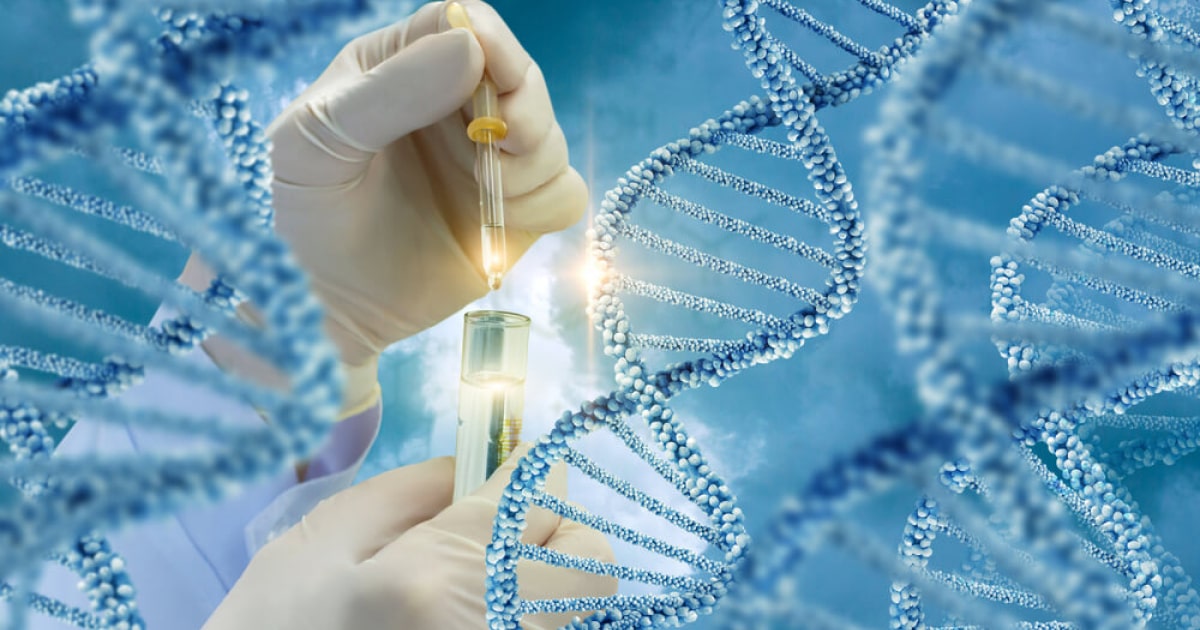
Expert Reviewed By: Dr. Brandon Colby MD
The Para-Bombay phenotype is a rare blood group characterized by the absence or reduced expression of ABO blood group antigens on red blood cells. This condition can lead to complications in blood transfusion and organ transplantation. In recent years, advances in genetic testing have improved our understanding of the molecular basis of this phenotype, allowing for more accurate diagnosis and better management of individuals with this condition. This article will discuss the genetic basis of the Para-Bombay phenotype, the role of genetic testing in diagnosis, and the potential uses of genetic testing for improved outcomes in affected individuals.
Understanding the Genetic Basis of the Para-Bombay Phenotype
The ABO blood group system is determined by the presence of specific antigens on the surface of red blood cells. These antigens are produced by the action of glycosyltransferase enzymes, which are encoded by the FUT1 and FUT2 genes. In the Para-Bombay phenotype, mutations in the FUT1 gene result in the reduced activity or complete absence of the α-1,2-fucosyltransferase enzyme, leading to the lack of ABO antigens on red blood cells. Several studies have identified novel FUT1 gene mutations in individuals with the Para-Bombay phenotype, contributing to our understanding of the genetic basis of this condition [1] [2] [3] [4].
Diagnosing the Para-Bombay Phenotype with Genetic Testing
Traditional serological methods for blood typing can sometimes fail to accurately identify individuals with the Para-Bombay phenotype, leading to potentially life-threatening complications in blood transfusion and organ transplantation. Genetic testing can provide a more accurate diagnosis by identifying the specific FUT1 gene mutations responsible for the reduced or absent α-1,2-fucosyltransferase activity. By analyzing the DNA sequence of the FUT1 gene, genetic testing can detect both known and novel mutations that may be associated with the Para-Bombay phenotype [1] [2] [3] [4].
Uses of Genetic Testing for the Para-Bombay Phenotype
Genetic testing for the Para-Bombay phenotype offers several benefits that can improve the management and outcomes of affected individuals. These include:
- Accurate diagnosis: Identifying the specific FUT1 gene mutations responsible for the Para-Bombay phenotype allows for a more accurate diagnosis, reducing the risk of complications in blood transfusion and organ transplantation.
- Personalized management: Knowledge of the specific FUT1 gene mutations can help healthcare providers develop personalized management strategies for individuals with the Para-Bombay phenotype, including appropriate blood product selection and monitoring for potential complications.
- Family screening: Genetic testing can identify at-risk family members who may also carry FUT1 gene mutations, allowing for early diagnosis and appropriate management of the Para-Bombay phenotype.
- Research and understanding: The identification of novel FUT1 gene mutations in individuals with the Para-Bombay phenotype contributes to our understanding of the genetic basis of this condition, potentially leading to the development of new therapies and management strategies.
In conclusion, genetic testing for the Para-Bombay phenotype offers a more accurate and comprehensive approach to diagnosis and management, potentially improving outcomes for affected individuals. As our understanding of the genetic basis of this condition continues to expand, genetic testing will likely play an increasingly important role in the identification and care of individuals with the Para-Bombay phenotype.
About The Expert Reviewer
Dr. Brandon Colby MD is a US physician specializing in the personalized prevention of disease through the use of genomic technologies. He’s an expert in genetic testing, genetic analysis, and precision medicine. Dr. Colby is also the Founder of and the author of Outsmart Your Genes.
Dr. Colby holds an MD from the Mount Sinai School of Medicine, an MBA from Stanford University’s Graduate School of Business, and a degree in Genetics with Honors from the University of Michigan. He is an Affiliate Specialist of the American College of Medical Genetics and Genomics (ACMG), an Associate of the American College of Preventive Medicine (ACPM), and a member of the National Society of Genetic Counselors (NSGC)